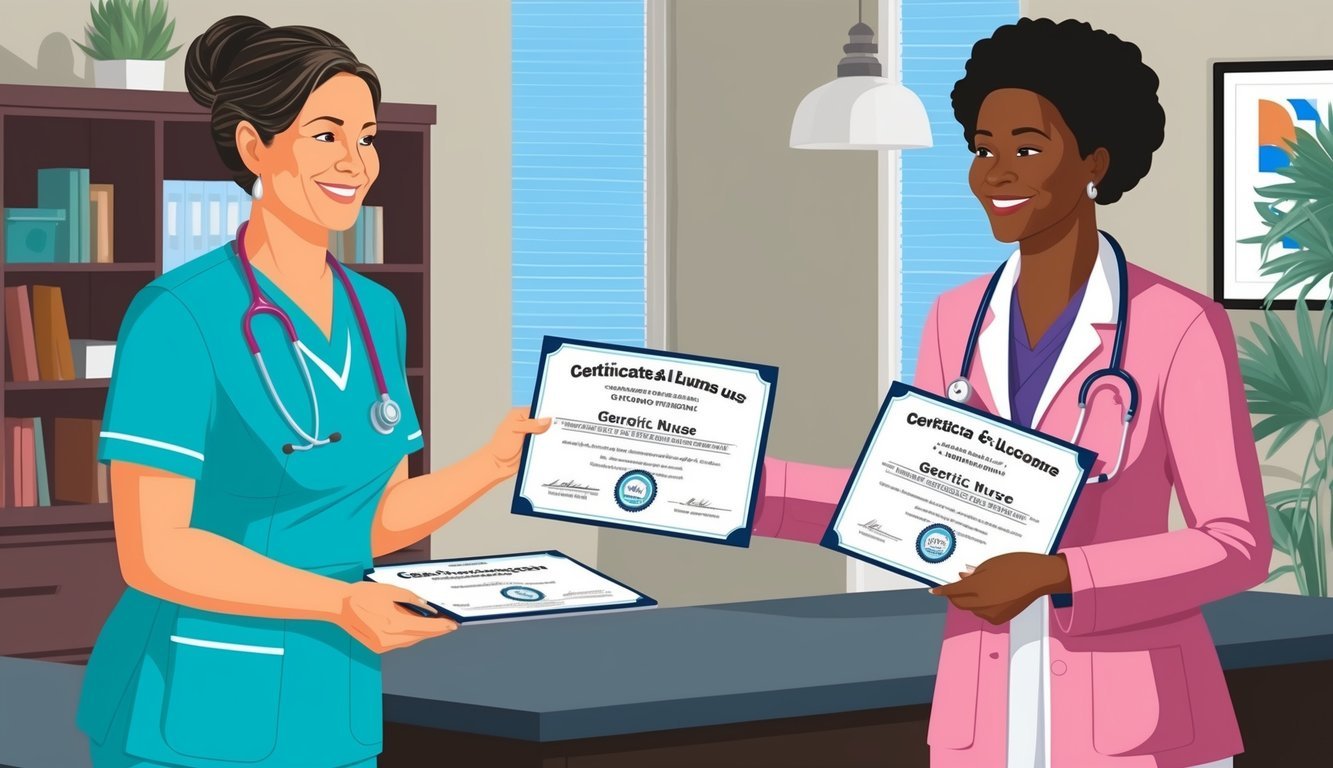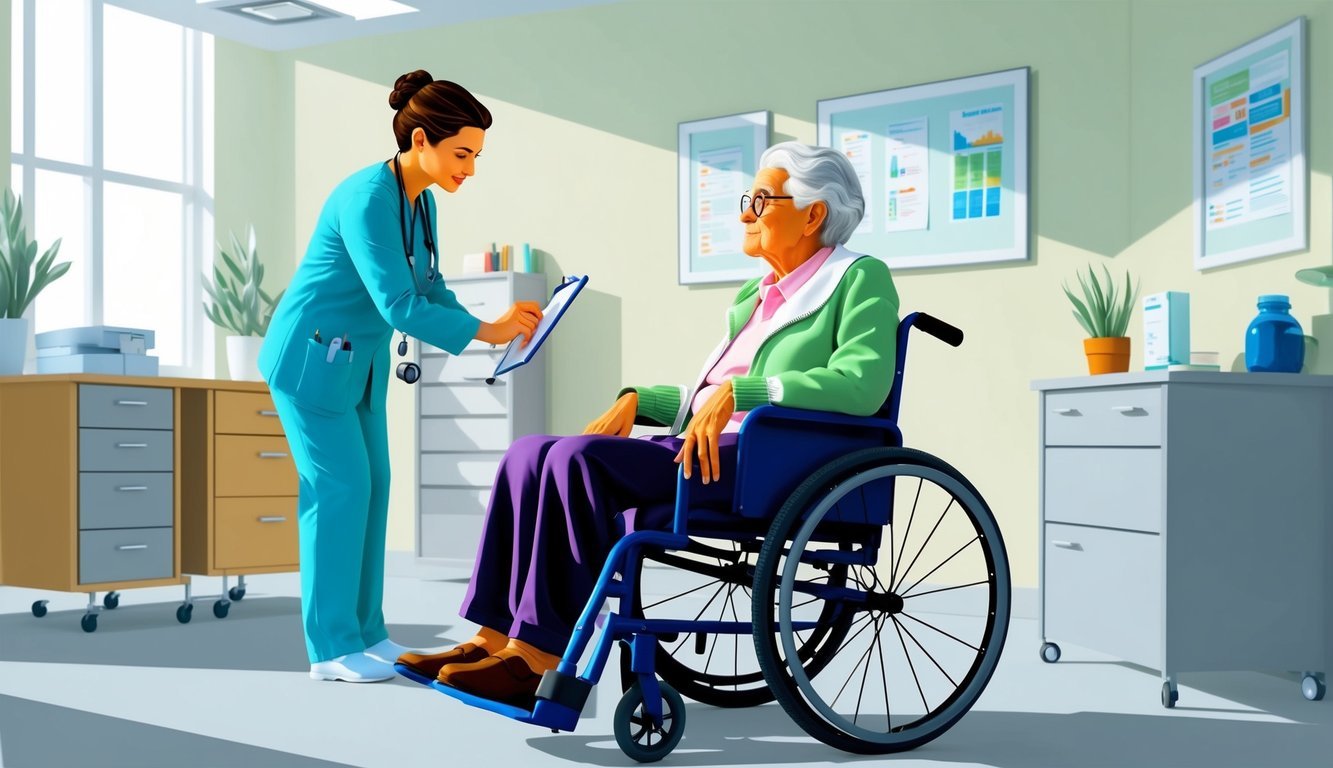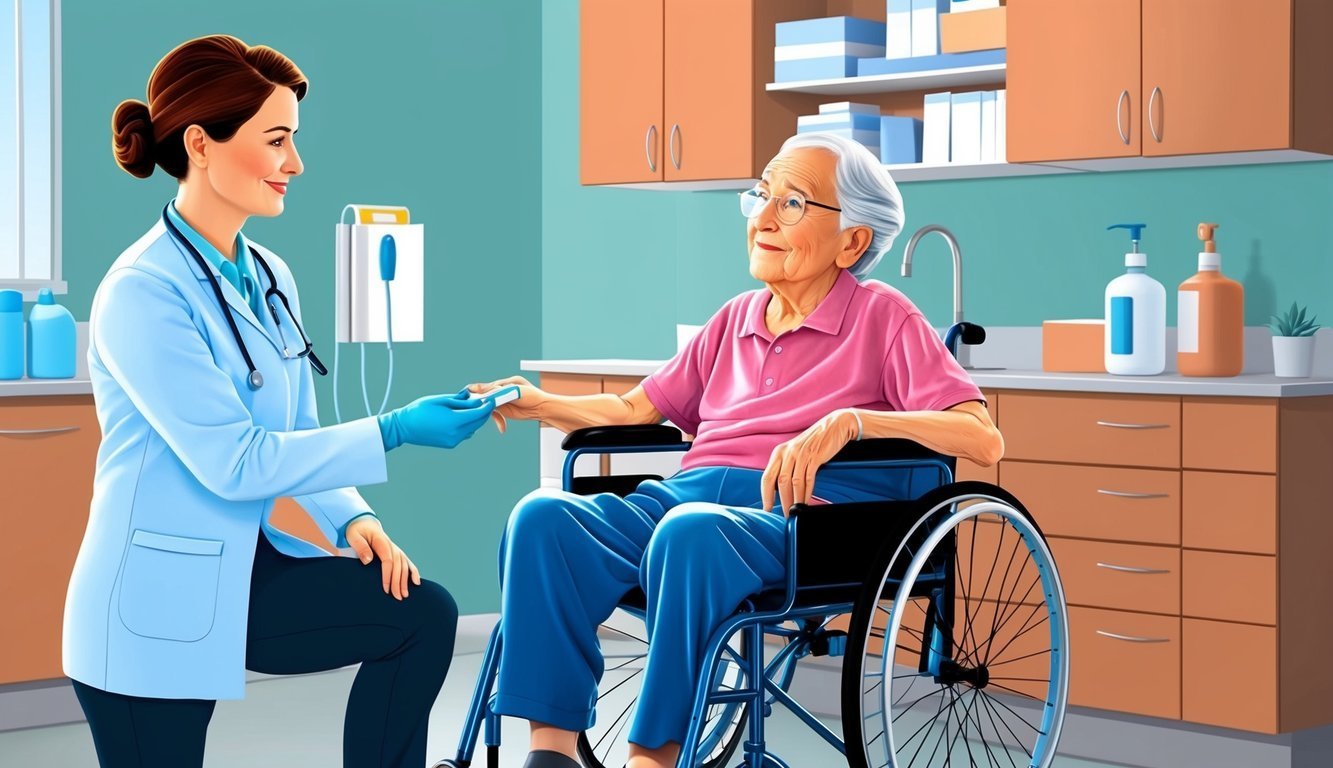As the population ages, the demand for professionals who specialize in geriatric care continues to grow.
A geriatric nurse practitioner plays a crucial role in addressing the complex health needs of older adults. These advanced practice nurses are trained to assess, diagnose, and manage health conditions in the aging population, ensuring a holistic approach to patient care.
To become a geriatric nurse practitioner, one typically pursues a Master of Science in Nursing (MSN) or a Doctor of Nursing Practice (DNP), focusing on adult-gerontology.
This education equips you with the knowledge and skills necessary to navigate the unique challenges associated with geriatric care.
The specialized training encompasses everything from chronic disease management to preventive care, making these professionals invaluable in various healthcare settings.
By understanding the roles and qualifications of geriatric nurse practitioners, you can appreciate the significant impact they have on enhancing the quality of life for elderly patients.
Their expertise is not only essential for improving patient outcomes but also for supporting families who seek integrated and compassionate care for their loved ones.
The Role of Geriatric Nurse Practitioners
Geriatric Nurse Practitioners (GNPs) play a crucial role in providing specialized care for older adults.
They focus on promoting health, managing chronic diseases, and enhancing the quality of life for this population.
Patient-Centered Care
In geriatric care, patient-centered approaches are essential.
GNPs assess the unique health needs of older adults by considering their medical history, lifestyle, and preferences.
They prioritize disease prevention and health promotion, ensuring that each patient receives personalized care plans.
Through comprehensive evaluations, you can identify factors that affect health, such as medications and comorbidities.
This holistic approach not only addresses physical conditions but also psychological and social well-being.
Effective communication is vital, as you engage with patients and their families to make informed decisions about their care.
Additionally, GNPs often educate patients on health maintenance practices and encourage active participation in their health management.
Collaborative Healthcare Delivery
Collaboration is a cornerstone of effective healthcare delivery for older adults.
GNPs work closely with a multidisciplinary team, including physicians, social workers, and rehabilitation specialists.
This teamwork ensures comprehensive care that addresses all aspects of an older adult’s health.
In long-term care facilities and nursing homes, GNPs coordinate services such as physical therapy, nutritional support, and mental health resources.
This not only enhances health outcomes but also improves overall quality of life.
Moreover, through regular communication with healthcare providers, you can streamline care transitions, reducing hospital readmissions.
By playing a pivotal role in managing complex health issues, GNPs contribute to a more integrated approach to healthcare services for older adults.
Educational Pathways

Becoming a geriatric nurse practitioner involves a structured educational journey.
Your path will require foundational training in nursing, advanced graduate education, and ongoing professional development to keep your skills current.
Undergraduate Preparation
To start your journey, you need a solid foundation in nursing through a Bachelor of Science in Nursing (BSN).
This degree typically takes four years to complete and covers essential topics such as anatomy, pharmacology, and patient care.
Some programs offer accelerated options for those with prior degrees, allowing completion in as little as 12-18 months.
After earning your BSN, you must pass the NCLEX-RN exam to become a registered nurse (RN).
This certification is crucial as it allows you to practice and gain experience in various healthcare settings, including those that focus on gerontology.
Graduate Education
Once you establish yourself as an RN, you need to pursue advanced education.
Many geriatric nurse practitioners complete a Master of Science in Nursing (MSN) degree or a Doctor of Nursing Practice (DNP).
An MSN program focused on gerontology typically includes core subjects like advanced pathophysiology and geriatric assessment, along with clinical practicums.
These programs can often be completed in 1-3 years, depending on whether you attend full-time or part-time.
Upon completion, you will be eligible for board certification as a geriatric nurse practitioner, allowing you to provide specialized care for older adults.
Continuing Professional Development
Ongoing education is vital for maintaining your credentials and staying updated on best practices in geriatric care.
Although formal continuing education requirements can vary by state, many practitioners engage in workshops, webinars, and conferences.
You may also consider obtaining certifications specific to gerontology, such as the Gerontology Certification from the American Nurses Credentialing Center.
Participating in these learning opportunities not only improves your skills but also enhances your employability and keeps you informed about new research and techniques in the field.
Certification and Licensure

Certification and licensure are crucial steps for those pursuing a career as a geriatric nurse practitioner.
These steps ensure that you possess the necessary qualifications and expertise to provide high-quality care to older adults.
Initial Registered Nursing Licensure
To become a geriatric nurse practitioner, you must first obtain your initial registered nursing licensure.
This requires completing an accredited nursing program, which can be either a two-year Associate Degree in Nursing (ADN) or a four-year Bachelor of Science in Nursing (BSN).
After completing your education, you must pass the NCLEX-RN exam, administered by the National Council of State Boards of Nursing (NCSBN).
Once you pass the NCLEX-RN, you can apply for licensure through your state’s nursing board.
Each state has specific requirements and regulations, so it’s essential to review the guidelines for your state.
You can find more information from the National Council of State Boards of Nursing or your respective state board.
Advanced Practice Nurse Certification
After obtaining your RN license, the next step is to achieve advanced practice nurse certification.
As a geriatric nurse practitioner, you will need to complete a graduate-level program that focuses on gerontology.
Upon completing this program, you can pursue certification through organizations such as the American Nurses Credentialing Center (ANCC) or the American Association of Nurse Practitioners (AANP).
The certification process typically involves passing a national certification exam, which evaluates your clinical knowledge and skills.
Successful completion of certification will grant you the title of a board-certified nurse practitioner.
State Licensure Requirements
In addition to national certification, obtaining state licensure is essential for practicing as a geriatric nurse practitioner.
Each state dictates its licensure requirements, which often include submitting proof of education, passing the national certification exam, and completing a background check.
Some states may also require continuing education as a part of the licensure renewal process.
Be sure to stay updated on your state’s requirements, which can be found on the American Association of Nurse Practitioners (AANP) website and your state’s nursing board site.
Understanding these regulations will help you maintain your practice and provide optimal care for your patients.
Scope of Practice and Specialties

Geriatric nurse practitioners (GNPs) play a crucial role in delivering comprehensive care tailored to older adults.
Their scope of practice encompasses primary and acute care settings, along with specialized skills that address the unique needs of this population.
Primary Care Focus
In the realm of primary care, GNPs provide ongoing care to older adults with chronic conditions and complex health needs.
Your responsibilities may include:
- Assessing Health: You conduct comprehensive health assessments, focusing on the individual’s medical history and social determinants of health.
- Prescribing Medications: Effectively managing medications is essential. You evaluate drug interactions and adjust dosages, ensuring optimal therapeutic outcomes.
- Preventive Care: Implementing preventive measures such as vaccinations and screenings plays a vital role in maintaining health and preventing complications.
- Long-Term Care: Many GNPs work in long-term care facilities, coordinating care and managing transitions for residents dealing with degenerative conditions.
Acute Care Expertise
Acute care GNPs specialize in managing critically ill adults, often working in hospitals or emergency settings.
Your expertise in this area includes:
- Emergency Evaluations: You perform rapid assessments and diagnostic tests to determine the urgent needs of patients.
- Complex Interventions: These may include managing acute exacerbations of chronic illnesses such as heart failure or pneumonia.
- Collaboration: Working with interdisciplinary teams ensures comprehensive management, including pharmacists, social workers, and rehabilitation specialists.
- Discharge Planning: You play a key role in safe transitions, educating patients and families about ongoing care to reduce hospital readmissions.
Specialized Skills in Gerontological Nursing
GNPs possess specific skills tailored to the intricacies of gerontological nursing, focusing on holistic care.
Important aspects include:
- Cognitive Assessment: You evaluate cognitive function, screening for conditions like dementia or delirium.
- Chronic Disease Management: Your approach involves understanding co-morbidities common in older adults such as diabetes and hypertension, tailoring treatment plans accordingly.
- Palliative Care: Providing support for end-of-life issues, you navigate complex emotional and ethical matters, ensuring that the patient’s dignity and wishes are honored.
- Care Coordination: You orchestrate care among various specialists, ensuring continuity and that all aspects of the patient’s health are addressed.
Career Opportunities and Advancement

As a geriatric nurse practitioner, you have various options for employment settings, potential salary ranges, and opportunities for professional development.
Understanding each of these aspects can help you navigate your career successfully.
Employment Settings
Geriatric nurse practitioners (GNPs) can work in diverse settings.
Common employment environments include:
- Assisted Living Facilities: GNPs provide specialized care to residents, focusing on chronic disease management and overall wellness.
- Home Health Care: In this role, you may develop personalized care plans while working autonomously with patients in their homes.
- Long-Term Care Facilities: These settings often require GNPs to manage complex health issues and coordinate with nursing professionals.
- Hospitals and Clinics: GNPs may also work in outpatient or inpatient settings, ensuring the elderly receive comprehensive care.
Each of these environments presents unique challenges and rewards, allowing you to tailor your career to your interests and skills.
Salary and Job Outlook
According to the Bureau of Labor Statistics, the median salary for nurse practitioners was around $117,000 in 2022, reflecting competitive compensation.
Salaries can vary based on factors such as:
- Experience level: More experienced GNPs often earn higher wages.
- Geographical location: Some states and cities offer higher pay due to demand.
- Work setting: Positions in hospitals may offer different compensation compared to home health care or assisted living.
The job outlook for GNPs is promising, with a projected growth rate of 46% from 2020 to 2030.
The increasing aging population and the rising demand for healthcare services drive this expansion.
Professional Development and Leadership
Advancing your career as a GNP involves continuous learning and leadership opportunities.
You can pursue various options, such as:
- Certification Programs: Obtaining specialized certifications can enhance your qualifications and boost your employability.
- Continuing Education: Many professionals opt for additional coursework or workshops to stay updated on best practices in geriatric care.
- Networking: Joining professional organizations, such as the American Association of Nurse Practitioners, can provide valuable resources and support.
By actively engaging in professional development, you can improve your skills, enhance your earning potential, and position yourself as a leader in the field of geriatrics.

